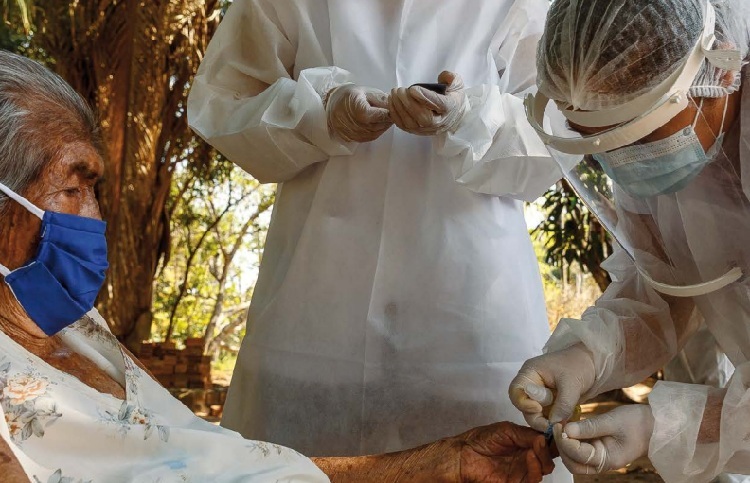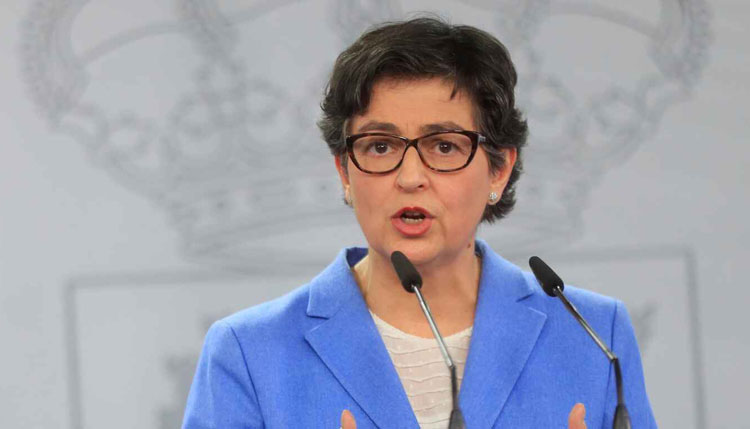Eduardo González
Spanish humanitarian action increased by 22 percent in 2019 but remains well below the 10 percent of total Official Development Assistance (ODA) recommended by international organisations, according to a report by Médecins Sans Frontières (MSF) and the Institute of Studies on Conflicts and Humanitarian Action (IECAH), which also warns that the arrival of COVID-19 “will mark all Spanish humanitarian action in the coming years”.
“The health, social and economic crisis caused by the COVID-19 and its serious humanitarian consequences are going to condition all humanitarian work in the coming years” on an international level, stresses the report Humanitarian action in 2019-2020: an agenda conditioned by the pandemic, produced by IECAH and MSF and presented in mid-December. All of this comes, furthermore, “at a time of declining international humanitarian funding” and “growing assistance and protection needs”, it adds. In this context, the outbreak of the pandemic “is affecting all of Spain’s humanitarian action and everything seems to indicate that this will be the case in the coming years”.
The report highlights “two major milestones” in Spanish humanitarian action between 2019 and 2020, the first of which was the approval of the Spanish Cooperation Strategy for Humanitarian Action (EAH) 2019-2026, published in March 2019, which “aims to guide the humanitarian work of all Spanish Cooperation actors”.
The second milestone was the approval of the Joint Spanish Cooperation Strategy for the COVID-19 Crisis, which was the result of “a participatory process led by the Directorate General for Sustainable Development Policies (DGPOLDES)” and which came into being in July 2020. The Strategy establishes “a series of priorities in line with the priorities of the European Union’s global response to the COVID” and incorporates an overall budget of 1,720 million euros, details the amounts that will be allocated to each priority, establishes a monitoring system and provides for an external evaluation to be carried out in the second half of 2021.
“The broad spectrum covered by the Strategy poses certain risks with the path laid down by Spanish humanitarian action in recent years based on concentration”, but also “presents multiple challenges for which it is going to be necessary to have high and continuous economic, political and social support”, the document warns. “However, despite the slight increase in the budgets allocated to humanitarian activities, the figures are still so low as to prevent a significant impact”, it continues.
In this sense, despite the fact that in 2019 there was an increase in humanitarian aid of 61.99 million euros, with a percentage increase of 22.1%, the weight of humanitarian aid in relation to Official Development Aid does not exceed 2.38%. “It should be remembered that both in the 2007 EAH and in the recently approved Humanitarian Strategy 2019-2026, the commitment of Spanish Cooperation is that humanitarian aid should represent 10% of ODA, in line with what has been achieved by other donors”, the report warns.
Apart from this, Spain’s net Official Development Aid was 2,601.67 million euros in 2019, an increase of 20.75% over the previous year. In spite of this important increase, the weight of ODA with respect to Gross National Income was 0.21%, slightly higher than last year (0.18%), but “much lower than expected”. “Although this slight increase is clearly insufficient if the government is to fulfil its commitment to reach 0.5% by 2023, it still has time to achieve it if it has the necessary will”, the report continues. “The economic and budgetary outlook is not very optimistic, but a global crisis such as the one we are experiencing requires global commitments”, it adds.







